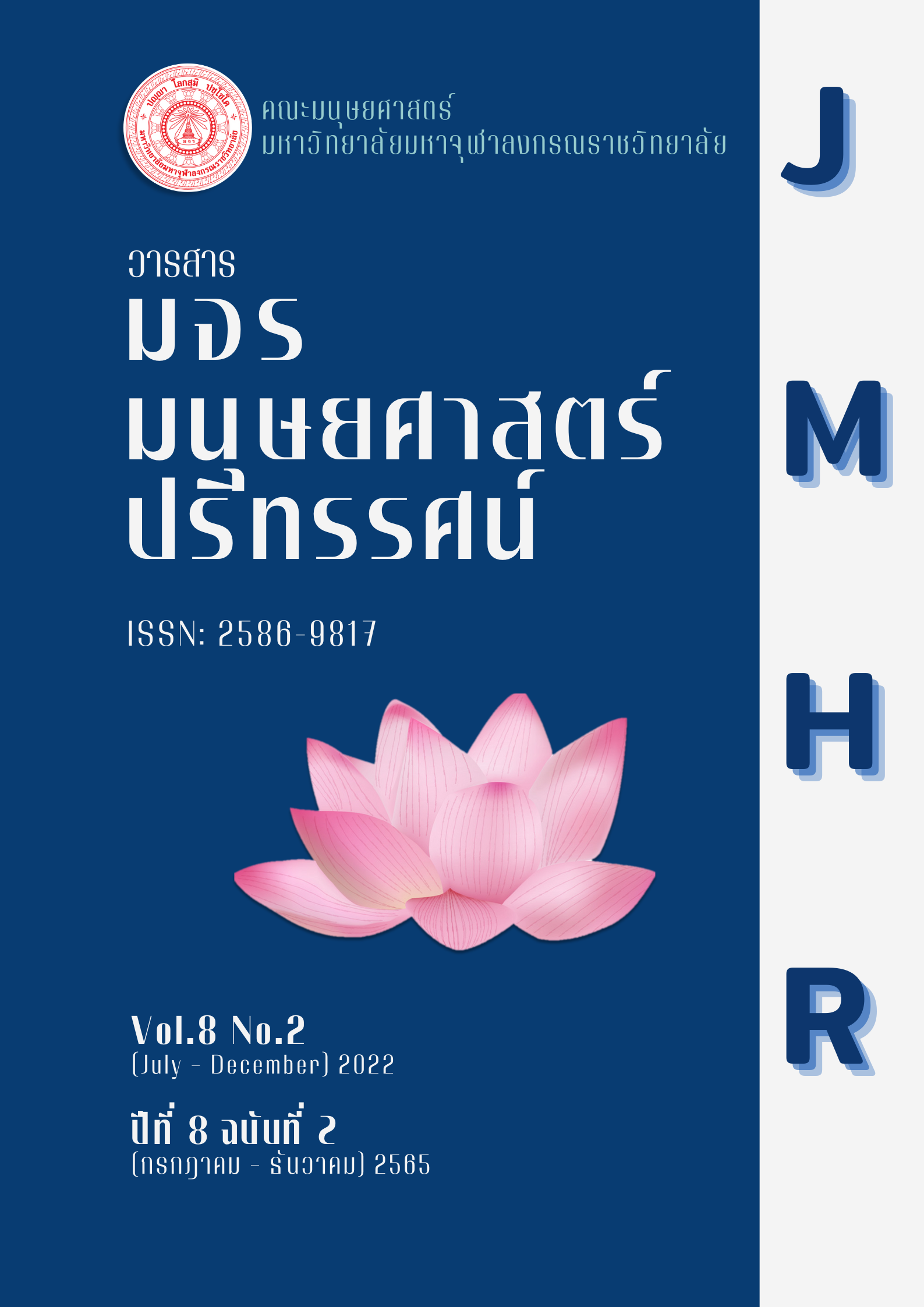พุทธวิธี : การสื่อสารทางการเมือง
คำสำคัญ:
พุทธวิธี,, การสื่อสาร, การเมืองบทคัดย่อ
บทความวิชาการนี้ มีจุดมุ่งหมายให้เห็นถึงความสำคัญในการใช้หลักพุทธวิธีในการสื่อสารทางการเมืองทุกระดับ เช่น การเมืองระดับชาติ การเมืองระดับท้องถิ่น และระดับประชาชนโดยทั่วไป เพื่อให้สังคมอยู่ร่วมกันอย่างปกติสุข โดยใช้หลักพุทธศาสนาเป็นเครื่องมือในการสื่อสาร ซึ่งการสื่อสารนับเป็นกลไกที่สำคัญในทางการเมืองตั้งแต่อดีตจนถึงปัจจุบันและการสื่อสารมักตกเป็นเครื่องมือของผู้มีอำนาจปกครอง ในการถ่ายทอดและขยายแนวคิด อุดมการณ์ทางการเมือง จากผู้ปกครองไปสู่ประชาชนเพื่อเป็นการชักชวน โน้มน้าวใจให้เกิดความศรัทธาและความจงรักภักดีต่อผู้ปกครอง ดังนั้น พุทธวิธีตามแนวพระพุทธศาสนาสามารถนำมาประยุกต์ใช้ได้กับการสื่อสารทางการเมืองในยุคปัจจุบัน เพื่อให้เกิดประสิทธิภาพในการสื่อสาร ส่งเสริมให้เกิดสันติสุขในสังคม ปราศจากอคติและก่อให้เกิดคุณธรรม จริยธรรมในการสื่อสาร
เอกสารอ้างอิง
คณะกรรมการอิสระตรวจสอบและค้นหาความจริง (คอป.). (2555). โครงการศึกษาวิจัยรากเหง้าของความขัดแย้งทางออกเพื่อความปรองดอง. กรุงเทพฯ : บริษัท พี เอส พริ้นติ้ง แอนด์.
นันทนา นันทวโรภาส. (2558). สื่อสารการเมือง : ทฤษฎีและการประยุกต์ใช้ (พิมพ์ครั้งที่ 2). กรุงเทพฯ : แมสมีเดีย.
ประเวศ วะสี. (2554). “สิ่งที่นายกรัฐมนตรีคนใหม่ควรทำ 10 ประการ”. สืบค้น 21 เมษายน 2565, จาก http//www.komchadluek.net/detail/20110630/101798/.html
พระพรหมคุณาภรณ์ (ป.อ. ปยุตโต). (2551). พุทธธรรม ฉบับปรับปรุงและขยายความ (พิมพ์ครั้งที่ 13). กรุงเทพฯ : สหธรรมิก.
พระมหาหรรษา ธมฺมหาโส. (2549). การจัดการความขัดแย้งอย่างสันติวิธีและการสื่อสารทางการเมืองในภาวะวิกฤต. การสื่อสารทางการเมืองหน่วยที่ 13. นนทบุรี. : โรงพิมพ์มหาวิทยาลัยสุโขทัยธรรมาธิราช.
“_______”. (2555). พระพุทธศาสนากับวิทยาการสมัยใหม่. กรุงเทพฯ : โรงพิมพ์สุขุมวิทการพิมพ์ จำกัด.
พระชินกร สุจิตฺโต (ทองดี). (2564). การบูรณาการหลักพุทธธรรมเพื่อส่งเสริมการสื่อสารทางการเมืองสำหรับประชาชนจังหวัดพระนครศรีอยุธยา (ดุษฎีนิพนธ์ปรัชญาดุษฎีบัณฑิต). มหาวิทยาลัยมหาจุฬาลงกรณราชวิทยาลัย. พระนครศรีอยุธยา.
พระสุทัศน์ กตสาโร (ประทุมแก้ว). (2556). การศึกษาพุทธจริยธรรมกับการสื่อสารทางการเมือง (สารนิพนธ์พุทธศาสตรดุษฎีบัณฑิต). มหาวิทยาลัยมหาจุฬาลงกรณราชวิทยาลัย. พระนครศรีอยะยา.
มหาจุฬาลงกรณราชวิทยาลัย. (2539). พระไตรปิฎกภาษาไทย ฉบับมหาจุฬาลงกรณราชวิทยาลัย.กรุงเทพฯ : โรงพิมพ์มหาจุฬาลงกรณราชวิทยาลัย.
สุรพงษ์ โสธนะเสถียร. (2545). การสื่อสารกับการเมือง. กรุงเทพฯ : โรงพิมพ์ประสิทธิ์ภัณฑ์แอนด์พริ้นติ้ง.
สำนักวิชาศึกษาทั่วไป มหาวิทยาลัยเกษมบัณฑิต. (2553). GE 125 การสื่อสาร และมนุษย์สัมพันธ์. สืบค้น 21 เมษายน 2565, จาก https://ge.kbu.ac.th/media_learning/doc/main_media _learning/GE125/01.pdf
Berlo, D.K. (1960). The Process of Communication: Introduction to Theory and Practice. San Francisco: Rinehart Press.
Bruce I. Newman. (1994). The Mass Marketing of Politics: Democracy In An Age Of. United State: Blackwell Publishers Ltd.

ดาวน์โหลด
เผยแพร่แล้ว
รูปแบบการอ้างอิง
ฉบับ
ประเภทบทความ
หมวดหมู่
สัญญาอนุญาต
ลิขสิทธิ์ (c) 2022 วารสาร มจร มนุษยศาสตร์ปริทรรศน์

อนุญาตภายใต้เงื่อนไข Creative Commons Attribution-NonCommercial-NoDerivatives 4.0 International License.





